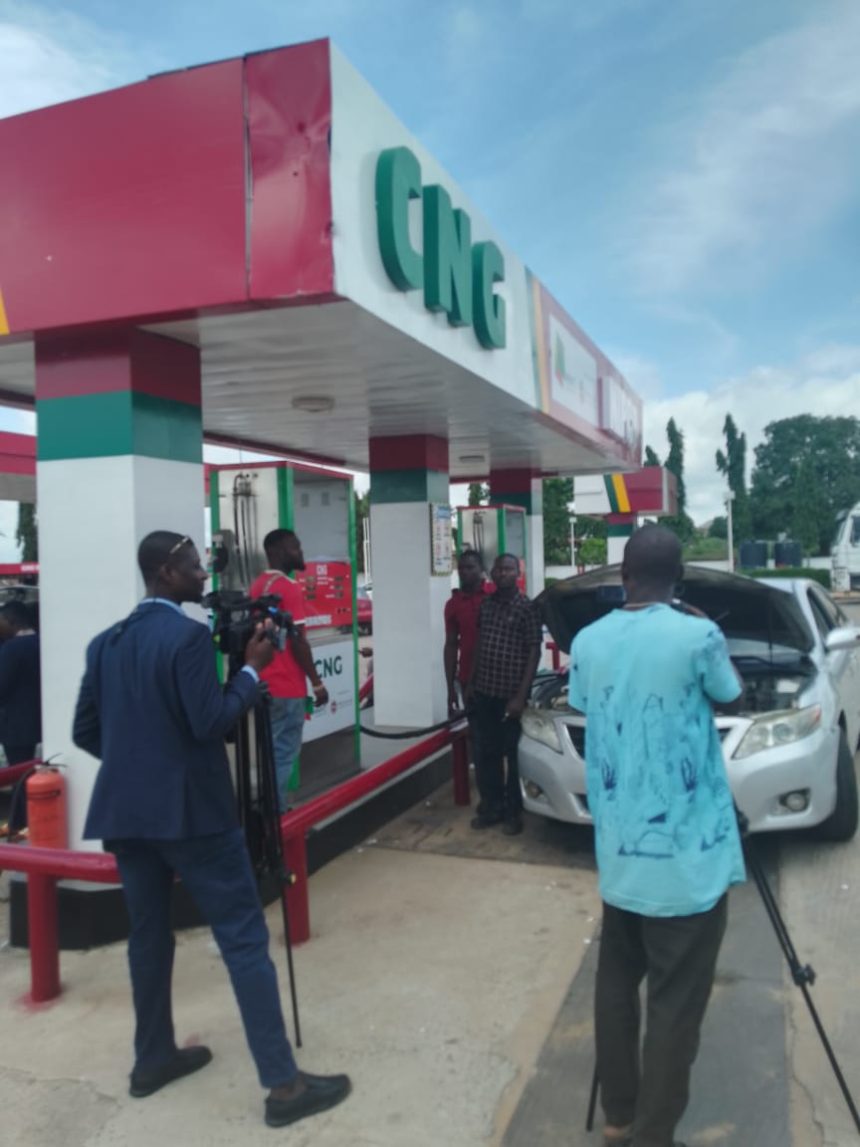By Chidiebere Ugwu
The Federal Government on Friday demonstrated its commitment to converting at least one million vehicles to run on Compressed Natural Gas (CNG) fuel by 2027.
The demonstration occurred when journalists were taken on a guided tour CNG filling in Abuja, by the Commercial Operations Manager, Presidential Compressed Natural Gas Initiative, PCNI, Mr. Omo Imoukhuede has said.
Imoukhuede, who spoke to journalists on Friday during a tour of CNG kit conversion workshops in Abuja, said more centres would be opened across the country in the coming days.
He stated that PCNI “has been very strategic in everything that we have done in pushing the CNG initiative to ensure that the adoption and awareness comes to light. We are starting with Abuja and we will be rolling out in other states across the Federation. Hopefully and as you can see, work is ongoing, the task will be accomplished”.
He noted that the first focus is on mass transit and commercial transport operators as they were key to the government’s target of reducing transportation cost.
Speaking to journalists at the NIPCO Plc CNG station, Assistant Manager, NIPCO Gas, Mr. Sunday Ayoola, said the installation of the conversion kit takes about five hours to complete.
He disclosed that the kit allows the vehicle to run with both petrol and CNG without any hitches, adding it costs about N4,000 to fill the cylinder at N200/standard cubic meter. He said with a full cylinder the vehicle could cover more than 150Km.
He assured motorists of the safety of the CNG cylinders, adding that “in case of impact nothing happens to this storage because it is 7mm (millimeter) thick. The cylinder has been designed to withstand impact and to withstand temperature.
“People are always apprehensive about natural gas, petrol and their volatility. Natural gas is lighter than and once it escapes from the cylinder it goes up above air making sure that there is no spool around unlike petrol. When there is leakage of petrol it creates a spool within the vehicle and any slight source of ignition, the vehicle is ignited. This is not so with natural gas and because of that basic property it is safer when compared to petrol”, he explained.
Industry experts have hailed the government’s initiative, citing the numerous benefits of CNG, including reduced fuel costs, lower emissions, and improved engine performance. As the country moves towards achieving its goal, many Nigerians are eagerly anticipating the benefits that CNG conversion will bring.
With the 2027 target fast approaching, the Federal Government remains committed to making CNG a viable option for Nigerian motorists. As the country continues to navigate the challenges of the global energy landscape, the successful implementation of this program could have far-reaching implications for the nation’s energy security and environmental sustainability.












